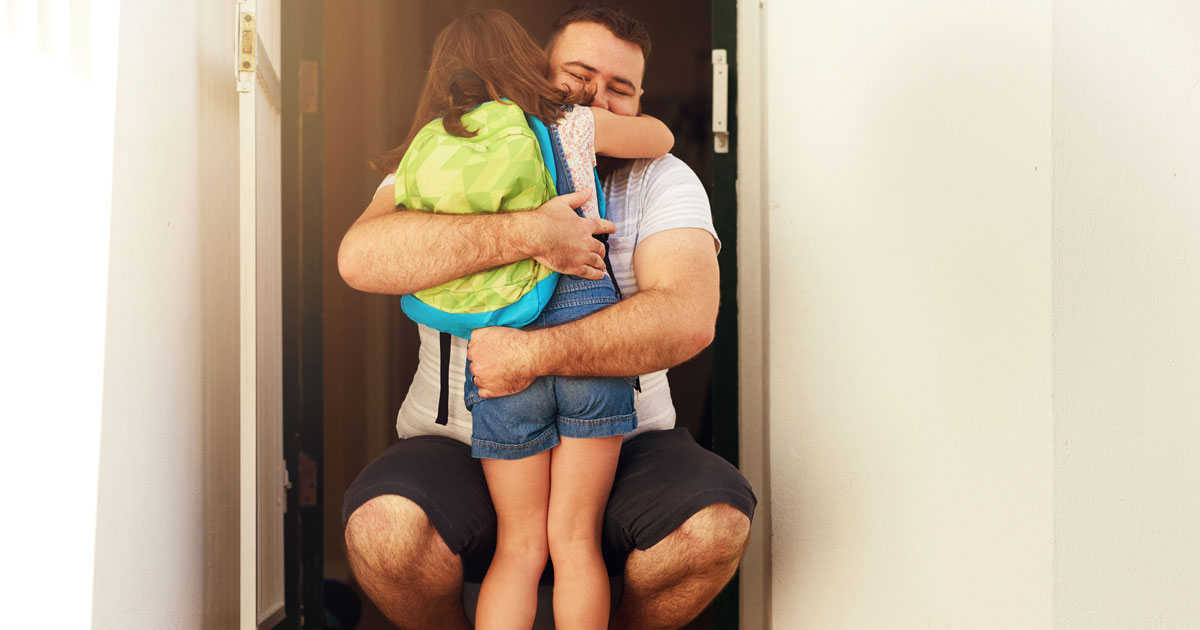It’s no secret that divorce can be a difficult time for children. From feeling caught in the middle of their parents’ arguments to dealing with the stress and anxiety of change, kids often struggle when their parents split up. However, parents can do things to help make the transition easier for their kids while they deal with their own emotions. By working together to keep conflict to a minimum, communicating openly with their children, and seeking outside support when needed, divorcing parents can help their kids adjust to this new chapter in their lives.
Remove the Cause of Conflict
The first step to protecting children from conflict during divorce is to remove the cause of the conflict. The specific cause will be different in every situation, but some common examples include financial stress, infidelity, or constant arguing.
If the cause of the conflict is not removed, the impact this can have on children can be significant. They may feel stuck in the middle of their parents’ arguments. They might also worry that the divorce means one parent will leave them, or they may feel like they need to choose sides.
All these scenarios can lead to anxiety, depression, and behavioral issues in children. These are very personal decisions that need to be made on a case-by-case basis, but if parents can find a way to remove the cause of conflict, it can go a long way in protecting their children from unnecessary details about the divorce.

Learn New Skills for Dealing With Conflict
The next step is to learn new skills for dealing with conflict. This can be done through therapy, support groups, or books. Some skills divorcing parents can learn include:
-
Active Listening
This is a strategic form of listening that involves giving your full attention to the person speaking, paraphrasing what they say, and making sure you understand their perspective. 1
-
Assertiveness
This is the ability to state your needs in a clear and respectful way that doesn’t involve putting down the other person.
-
Compromise
Compromising means reaching an agreement that is acceptable to both parties, often by giving up something important to you in return for something that is important to the other person.
-
Empathy
This involves the ability to deeply understand and share the feelings of another person by putting yourself in their shoes.
-
Conflict Resolution
This is the process of coming to an agreement when there is a disagreement. From identifying the problem and brainstorming solutions to implementing the agreed-upon solution, conflict resolution skills can help divorcing parents reach a resolution that is in the best interest of their children.
Keep Children Out of the Middle
Another important step is to keep children out of the middle. This means parents should avoid talking about the divorce in front of their children. They should not use their children as messengers to communicate with the other parent, and they should not ask their children to take sides. 2
While it may be tempting to use children to get information from the other parent or to vent about the divorce, it is important to remember that this puts a lot of pressure on children. They did not ask for this divorce and they should not be put in the position of feeling like they need to choose sides. This can lead to a lot of guilt and confusion for children, which can impact their mental and emotional health.
If parents can find a way to communicate with each other without involving their child, it can go a long way to protect the child from the stress and anxiety that can come with being caught in the middle.
Control Your Emotions to the Best of Your Ability
It is also important for parents to try to control their emotions to the best of their ability. 3This means avoiding yelling, name-calling, and put-downs. It also means avoiding making threats or ultimatums.
When emotions are running high, it can be difficult to control what you say. But it is important to remember that your words can have a big impact on your children. They are likely already feeling scared and confused, and they don’t need to see their parents fighting.
If you find you are having trouble controlling your emotions, it may be helpful to step away from the situation and take some time to calm down. Once you have had a chance to cool off, you can then approach the situation in a more constructive way.
Prepare for Long-Term Conflict
While it is important to try to resolve conflict in a positive way, it is also important to prepare for the possibility of long-term conflict. This means having a plan in place for how you will deal with conflict if it arises.
Not all conflicts can be resolved. In some cases, you may need to agree to disagree. This doesn’t mean you can’t still be civil to each other, but it does mean that you may need to find a way to co-parent without agreeing on everything. Reminding each other of your mutual goal of what is best for your children can help you stay focused on what is important, even when you don’t see eye to eye.
If you are preparing for a divorce, it is important to talk to a lawyer about your rights and responsibilities. They can help you understand the legal process and what you can expect. The long-term conflict may not always be avoidable but having a plan in place can help you deal with it in a more constructive way. It is also beneficial to seek out support from adult friends and family. They can provide you with a listening ear and a shoulder to cry on.
No matter what, remember that you are not alone. There are many resources available to help you through this difficult time and be best prepared for the future.

Contain Any Anger or Frustration
Feelings of anger and frustration are common emotions during and after a divorce. However, it is important to try to contain these emotions as much as possible, especially when around your children.
Active displays of anger, such as yelling or name-calling, can be very scary for children. They may not understand what is happening, and they may feel like they are to blame.
It is okay to feel angry and frustrated, but it is crucial to find healthy ways to deal with these emotions. This may mean talking to a friend or therapist, going for a run, or writing in a journal.
Avoid Fostering Any Loyalty Conflicts
During and after a divorce, it is common for children to feel loyal to both parents. They may love both parents and want them to be happy, even if they are no longer together. This can lead to conflict if children feel like they have to choose between their parents.
Some examples of loyalty conflict include:
- A child may feel like they must choose which parent to spend holidays with.
- A child may feel torn between parents if they have different rules or expectations.
- A child may feel like they need to keep secrets from one parent to avoid upsetting the other.
To avoid this, it is important to try not to put your children in the middle of any conflict. This means avoid talking about your ex in a negative way, asking your children to take sides, or using them as a sounding board for your own emotions. It is also important to be respectful of your co-parent in front of your children. This means avoiding talking badly about them, arguing with them, or trying to undermine their authority.
If you find yourself having conflicting emotions about your loyalty to your ex, it is important to talk to a therapist or counselor. They can help you work through these emotions in a constructive way.
Focus on Constructive Arguments
It is normal for divorced parents to disagree with each other from time to time. However, it is important to try to keep these disagreements constructive. This means avoiding arguing in front of your children, name-calling, or making personal attacks.
If you find yourself disagreeing with your co-parent, try to remain calm and respectful. Listen to their point of view, even if you do not agree with it. It is also important to avoid getting defensive and try to see their side of the issue.
In some cases, it may be helpful to take a break from the conversation if you feel like it is getting too heated. This means walking away or agreeing to disagree. Once you have both had time to calm down, you can try to resume the discussion in a more constructive way. This can protect your children from being caught in the middle of a heated argument that they have no control over.
Never Deny Parenting Time

It is important to remember that even though you are divorced, your children still have two parents. This means they should have the opportunity to spend time with both parents, even if it is not equal. 4
To avoid conflict, it is important to never deny parenting time to your co-parent. This means if they have scheduled visitation, try to keep it as scheduled. If there is a legitimate reason why the visitation must be changed, work with your co-parent to find a solution that works for both of you. When this happens, openly communicate with your children about exactly why this change is happening. If they can follow the logic behind the decision, it will be less likely to cause conflict.
Keep in mind that your children may not always want to spend time with both parents. This is normal and should not be seen as a sign of loyalty conflict. It is important to encourage your children to spend time with both parents, but ultimately, the decision should be up to them. They may already be feeling pulled in different directions and may need some time to adjust to the new family dynamic. Children feel a lack of control when parents go through a divorce, so it is important to try to give them some control back when it comes to decisions about parenting time.
Focus on Positive Affirmations About the Other Parent
To help reduce loyalty conflict or combat negative feelings, be sure to focus on the positive aspects of the other parent. This means looking for things that you appreciate about them as a person or as a parent and ensuring your children hear the same message. 5
It is also crucial to avoid speaking negatively about the other parent in front of your children. This can be difficult, especially if you are still angry about the divorce or have a difficult relationship with your ex. However, remember that your children love both of their parents, and hearing negative things about either one can be very confusing and upsetting.
If you find yourself struggling to say anything positive about the other parent, it may be helpful to take some time to reflect on why you feel that way. If there are legitimate concerns, address them in a constructive way. This means communicating directly with the other parent or, if necessary, involving a third party such as a therapist or mediator.
When Children Are a Cause of Conflict
In some cases, children can be a cause of conflict between parents. Common emotional or behavioral problems, such as acting out or not listening, can be frustrating for parents. As these issues progress and do not resolve, they can lead to more serious conflict between both parents. A lack of communication about how to discipline the child or how to handle the behavioral issue can further divide the parents.
If you find yourself in this situation, try to remain calm and constructive. It can be helpful to talk to your co-parent about your concerns and see if you can mutually deal with the issue. If you cannot reach an agreement, you may need to seek out the help of a mediator or counselor. Remember, you are not alone. Many parents find themselves in this situation, and there is no shame in seeking help.
It is also important to remember children are not to blame for conflict between parents. In some cases, conflict may be due to differences in parenting styles or values. If this is the case, you’ll want to try to find a way to respect differences and work together for the sake of your children. Remember that children are not purposely trying to cause conflict. In most cases, they are just trying to express their own emotions and needs.
Sources:
- Friston, K. J., Sajid, N., Quiroga-Martinez, D. R., Parr, T., Price, C. J., & Holmes, E. (2021). Active listening. Hearing research, 399, 107998. https://psycnet.apa.org/doi/10.1016/j.heares.2020.107998
- Høigilt, A. M., & Bøe, T. D. (2021). Doubt, Hope, Pain, and New Discoveries: Parents’ Experiences of the High‐Conflict Program ‘No Kids in the Middle’. Australian and New Zealand Journal of Family Therapy, 42(2), 188-200. https://doi.org/10.1002/anzf.1451
- Ghorbani Amir, H. A., Moradi, O., Arefi, M., & Ahmadian, H. (2019). The Effectiveness of Acceptance and Commitment Therapy on Cognitive-Emotional Regulation, Resilience, and Self-control Strategies in Divorced Women. Avicenna Journal of Neuro Psycho Physiology, 6(4), 195-202. Retrieved May 24, 2022, from https://ajnpp.umsha.ac.ir/article-1-196-en.html
- Steinbach, A., & Augustijn, L. (2021). Post‐separation parenting time schedules in joint physical custody arrangements. Journal of Marriage and Family, 83(2), 595-607. https://doi.org/10.1111/jomf.12746
- Positive affirmations to remind your children during a separation. Institute of Child Psychology. (2020, October 13). Retrieved May 23, 2022, from https://instituteofchildpsychology.com/positive-affirmations-to-remind-your-children-during-a-separation/







 Many people in self-proclaimed unhappy marriages say that they stay with their spouse
Many people in self-proclaimed unhappy marriages say that they stay with their spouse  The funny thing about memories is that we only remember certain things – the really good things and the really bad things. All of the middle moments just sort of blend together. So when you look back at the life you have built with your spouse, there are a few key memories and moments that spring to mind, and since the actual emotions you felt are long passed, you have ghost emotions that are typically much stronger one direction or the other than it was during the actual event.
The funny thing about memories is that we only remember certain things – the really good things and the really bad things. All of the middle moments just sort of blend together. So when you look back at the life you have built with your spouse, there are a few key memories and moments that spring to mind, and since the actual emotions you felt are long passed, you have ghost emotions that are typically much stronger one direction or the other than it was during the actual event. Regardless of what other reason your brain may generate for you, the #1 reason why we stay in unhappy marriages is
Regardless of what other reason your brain may generate for you, the #1 reason why we stay in unhappy marriages is